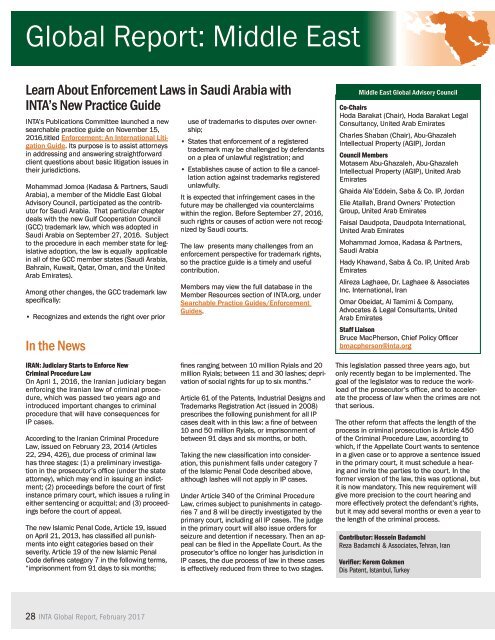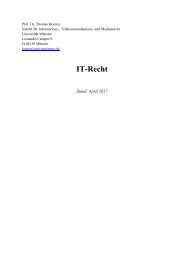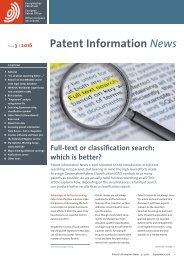GlobalReport
QqMg309yB9H
QqMg309yB9H
You also want an ePaper? Increase the reach of your titles
YUMPU automatically turns print PDFs into web optimized ePapers that Google loves.
Global Report: Middle East<br />
Learn About Enforcement Laws in Saudi Arabia with<br />
INTA’s New Practice Guide<br />
INTA’s Publications Committee launched a new<br />
searchable practice guide on November 15,<br />
2016,titled Enforcement: An International Litigation<br />
Guide. Its purpose is to assist attorneys<br />
in addressing and answering straightforward<br />
client questions about basic litigation issues in<br />
their jurisdictions.<br />
Mohammad Jomoa (Kadasa & Partners, Saudi<br />
Arabia), a member of the Middle East Global<br />
Advisory Council, participated as the contributor<br />
for Saudi Arabia. That particular chapter<br />
deals with the new Gulf Cooperation Council<br />
(GCC) trademark law, which was adopted in<br />
Saudi Arabia on September 27, 2016. Subject<br />
to the procedure in each member state for legislative<br />
adoption, the law is equally applicable<br />
in all of the GCC member states (Saudi Arabia,<br />
Bahrain, Kuwait, Qatar, Oman, and the United<br />
Arab Emirates).<br />
Among other changes, the GCC trademark law<br />
specifically:<br />
• Recognizes and extends the right over prior<br />
In the News<br />
use of trademarks to disputes over ownership;<br />
• States that enforcement of a registered<br />
trademark may be challenged by defendants<br />
on a plea of unlawful registration; and<br />
• Establishes cause of action to file a cancellation<br />
action against trademarks registered<br />
unlawfully.<br />
It is expected that infringement cases in the<br />
future may be challenged via counterclaims<br />
within the region. Before September 27, 2016,<br />
such rights or causes of action were not recognized<br />
by Saudi courts.<br />
The law presents many challenges from an<br />
enforcement perspective for trademark rights,<br />
so the practice guide is a timely and useful<br />
contribution.<br />
Members may view the full database in the<br />
Member Resources section of INTA.org, under<br />
Searchable Practice Guides/Enforcement<br />
Guides.<br />
Middle East Global Advisory Council<br />
Co-Chairs<br />
Hoda Barakat (Chair), Hoda Barakat Legal<br />
Consultancy, United Arab Emirates<br />
Charles Shaban (Chair), Abu-Ghazaleh<br />
Intellectual Property (AGIP), Jordan<br />
Council Members<br />
Motasem Abu-Ghazaleh, Abu-Ghazaleh<br />
Intellectual Property (AGIP), United Arab<br />
Emirates<br />
Ghaida Ala’Eddein, Saba & Co. IP, Jordan<br />
Elie Atallah, Brand Owners’ Protection<br />
Group, United Arab Emirates<br />
Faisal Daudpota, Daudpota International,<br />
United Arab Emirates<br />
Mohammad Jomoa, Kadasa & Partners,<br />
Saudi Arabia<br />
Hady Khawand, Saba & Co. IP, United Arab<br />
Emirates<br />
Alireza Laghaee, Dr. Laghaee & Associates<br />
Inc. International, Iran<br />
Omar Obeidat, Al Tamimi & Company,<br />
Advocates & Legal Consultants, United<br />
Arab Emirates<br />
Staff Liaison<br />
Bruce MacPherson, Chief Policy Officer<br />
bmacpherson@inta.org<br />
IRAN: Judiciary Starts to Enforce New<br />
Criminal Procedure Law<br />
On April 1, 2016, the Iranian judiciary began<br />
enforcing the Iranian law of criminal procedure,<br />
which was passed two years ago and<br />
introduced important changes to criminal<br />
procedure that will have consequences for<br />
IP cases.<br />
According to the Iranian Criminal Procedure<br />
Law, issued on February 23, 2014 (Articles<br />
22, 294, 426), due process of criminal law<br />
has three stages: (1) a preliminary investigation<br />
in the prosecutor’s office (under the state<br />
attorney), which may end in issuing an indictment;<br />
(2) proceedings before the court of first<br />
instance primary court, which issues a ruling in<br />
either sentencing or acquittal; and (3) proceedings<br />
before the court of appeal.<br />
The new Islamic Penal Code, Article 19, issued<br />
on April 21, 2013, has classified all punishments<br />
into eight categories based on their<br />
severity. Article 19 of the new Islamic Penal<br />
Code defines category 7 in the following terms,<br />
“imprisonment from 91 days to six months;<br />
fines ranging between 10 million Ryials and 20<br />
million Ryials; between 11 and 30 lashes; deprivation<br />
of social rights for up to six months.”<br />
Article 61 of the Patents, Industrial Designs and<br />
Trademarks Registration Act (issued in 2008)<br />
prescribes the following punishment for all IP<br />
cases dealt with in this law: a fine of between<br />
10 and 50 million Ryials, or imprisonment of<br />
between 91 days and six months, or both.<br />
Taking the new classification into consideration,<br />
this punishment falls under category 7<br />
of the Islamic Penal Code described above,<br />
although lashes will not apply in IP cases.<br />
Under Article 340 of the Criminal Procedure<br />
Law, crimes subject to punishments in categories<br />
7 and 8 will be directly investigated by the<br />
primary court, including all IP cases. The judge<br />
in the primary court will also issue orders for<br />
seizure and detention if necessary. Then an appeal<br />
can be filed in the Appellate Court. As the<br />
prosecutor’s office no longer has jurisdiction in<br />
IP cases, the due process of law in these cases<br />
is effectively reduced from three to two stages.<br />
This legislation passed three years ago, but<br />
only recently began to be implemented. The<br />
goal of the legislator was to reduce the workload<br />
of the prosecutor’s office, and to accelerate<br />
the process of law when the crimes are not<br />
that serious.<br />
The other reform that affects the length of the<br />
process in criminal prosecution is Article 450<br />
of the Criminal Procedure Law, according to<br />
which, if the Appellate Court wants to sentence<br />
in a given case or to approve a sentence issued<br />
in the primary court, it must schedule a hearing<br />
and invite the parties to the court. In the<br />
former version of the law, this was optional, but<br />
it is now mandatory. This new requirement will<br />
give more precision to the court hearing and<br />
more effectively protect the defendant’s rights,<br />
but it may add several months or even a year to<br />
the length of the criminal process.<br />
Contributor: Hossein Badamchi<br />
Reza Badamchi & Associates, Tehran, Iran<br />
Verifier: Kerem Gokmen<br />
Dis Patent, Istanbul, Turkey<br />
28 INTA Global Report, February 2017





